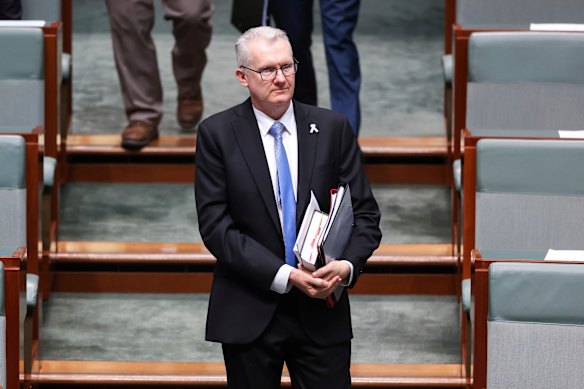
Australia’s Home Affairs Minister Tony Burke has formalized a significant agreement with Nauru, committing $408 million for the deportation of hundreds of foreign-born criminals. This deal, signed during a recent visit to the Pacific Island nation, enables the federal government to send individuals from the NZYQ cohort, which includes over 350 people convicted of serious crimes, including murder and child exploitation.
Burke’s meeting with Nauru President David Adeang and other officials culminated in a memorandum of understanding that outlines the financial commitments and logistics for resettlement. According to a transcript from Nauru’s parliamentary session, the upfront payment of $408 million will be followed by annual payments of approximately $70 million to support the ongoing costs of resettling these individuals.
Background on Immigration Detention Policy
The NZYQ cohort is comprised of individuals who had previously been released into the community after a November 2023 ruling by the High Court deemed indefinite immigration detention unlawful. As a result, many among this group have resisted deportation to their countries of origin, prompting the Australian government to seek alternative solutions.
Burke’s visit to Nauru coincided with the introduction of new legislation aimed at streamlining the deportation process. He stated that these legislative changes would eliminate procedural fairness requirements that non-citizens could use to delay their removal. This is relevant as attempts to deport individuals from the NZYQ cohort to Nauru have faced legal challenges, stalling progress.
In comments made during a parliamentary session, Burke emphasized the importance of enforcing immigration laws: “Anyone who doesn’t have a valid visa should leave the country. This is a fundamental element of a functioning visa system.”
Implications of the Agreement
The agreement with Nauru highlights the Australian government’s strategy to manage foreign-born criminals within its borders. By reinforcing the deportation policy, the government aims to address the significant challenges posed by individuals who have committed serious offenses and have been released into the community.
As the agreement is set to take effect with the arrival of the first individuals in Nauru, the political ramifications are likely to unfold in the coming weeks. The government’s approach has drawn scrutiny and debate among various stakeholders, reflecting the complexities of immigration policy and the balance between security and human rights.
Overall, this deal marks a pivotal moment in Australia’s immigration strategy, reinforcing the government’s commitment to deporting those without valid visas while navigating the legal and ethical implications involved.






